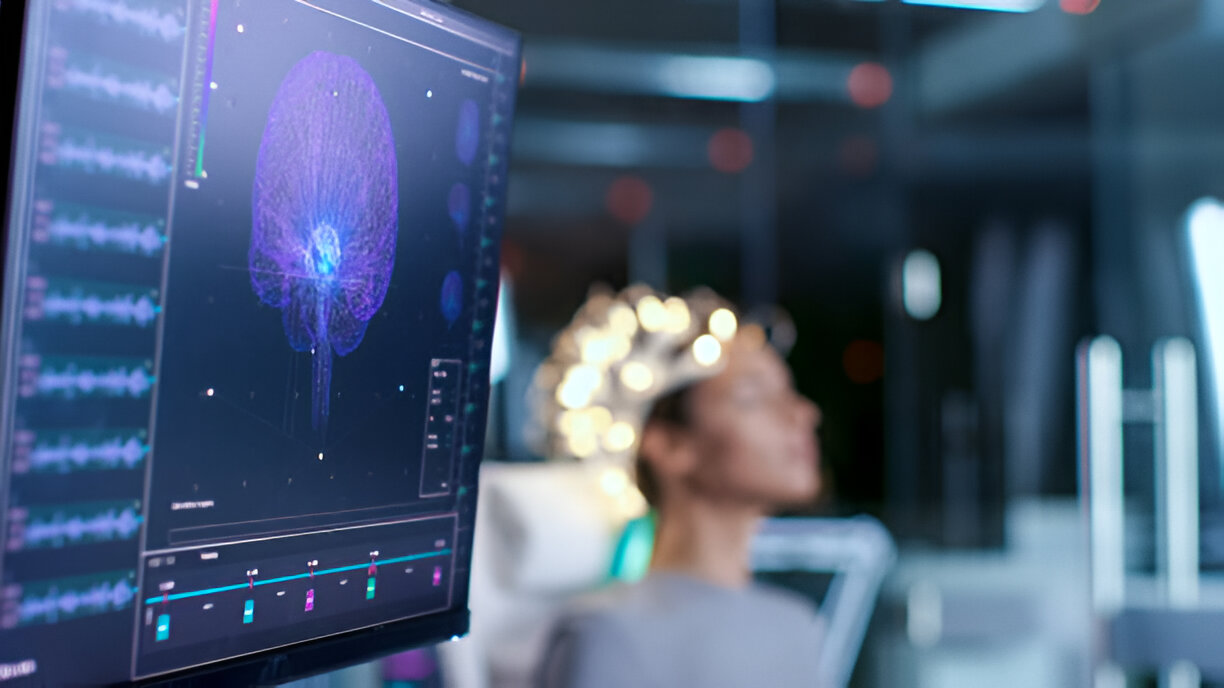-
Brain & Spine Clinic Zobra Canal Road Near SCB Medical college Cuttack
-
SUM Hospital, K8 Kalinga Nagar, Kalinganagar, Bhubaneswar, Odisha
-
srikantswainvss@gmail.com

Screen Time and Your Brain: What Neurologists Want You to Know
In today’s digital world, screens are everywhere, on our desks, in our pockets, and even on our wrists. From smartphones and laptops to televisions and tablets, screen exposure is an inevitable part of modern life. But have you ever wondered what all this screen time is doing to your brain? As neurologists continue to study the effects of technology on brain health, the evidence is becoming clearer: too much screen time can profoundly impact your cognitive, emotional, and neurological well-being.
How Screens Affect Brain Function
The human brain thrives on balance and stimulation, but excessive screen use can interfere with natural brain development and function. Prolonged exposure to screens can lead to digital fatigue, where the brain becomes overstimulated by constant information, leading to mental exhaustion, poor focus, and decreased productivity.
In children and adolescents, excessive screen time has been linked to delayed language development, reduced attention span, and impaired social skills. It can cause difficulty concentrating, memory issues, and increased stress levels for adults.
Screen Time and Sleep Disruption
One of the most well-documented impacts of screen use is its effect on sleep quality. The blue light emitted from screens suppresses melatonin—the hormone responsible for sleep—making it harder to fall asleep and stay asleep. Inadequate or poor-quality sleep, in turn, affects brain functions such as memory consolidation, emotional regulation, and decision-making.
The Dopamine Loop: Why It’s Hard to Look Away
Scrolling through social media or binge-watching a series might feel harmless, but it’s triggering your brain’s dopamine system, which controls feelings of reward and pleasure. Every “like,” message, or notification gives a tiny dopamine hit, encouraging repetitive behavior. Over time, this can create an addictive loop, making it difficult to disconnect even when you know you should.
Kids and Screens: A Growing Concern
For developing brains, screen time poses unique challenges. Children who spend excessive time on screens may face cognitive delays, behavioral issues, and reduced academic performance. Neurologists advise that screen exposure should be limited and supervised, and children should be encouraged to engage in more physical, creative, and social activities.
How to Maintain a Healthy Brain-Screen Balance
Here are some neurologist-recommended tips to protect your brain from screen overload:
· Follow the 20-20-20 rule: Every 20 minutes, look at something 20 feet away for at least 20 seconds.
· Limit screen time before bed: Power down devices at least 1 hour before sleep.
· Set screen-free zones: Keep bedrooms and dining areas free from screens.
· Encourage outdoor activities: Physical activity helps balance screen-induced overstimulation.
· Be mindful of content: Choose educational or mentally engaging material over passive scrolling.
Final Thoughts
Screens aren’t going anywhere—but how we use them can make all the difference. By setting healthy boundaries and becoming more mindful of our digital habits, we can protect our brains from the negative effects of screen time. If you’re experiencing symptoms like brain fog, poor sleep, or anxiety that may be linked to screen overuse, don’t hesitate to consult a neurologist.
